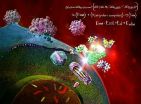(Press-News.org) Past research shows physical beauty can be detrimental to women applying for masculine jobs. But belles can put the brakes on discrimination by acknowledging their looks during an interview, according to a new study led by the University of Colorado Boulder.
The paper, published in Organizational Behavior and Human Decision Processes, is the first to provide a method for curtailing such prejudice against attractive women.
In the study, when an attractive woman applied for a job typically filled by men -- a construction job -- and said, "I know I don't look like your typical applicant," or "I know there aren't a lot of women in this industry," and pointed out successes on her resume, she received higher ratings from reviewers than counterparts who made no mention of their looks.
"Turns out there's merit in the old Pantene ad, 'Don't hate me because I'm beautiful,'" said Stefanie Johnson, lead author of the paper and assistant professor of management and entrepreneurship at CU-Boulder's Leeds School of Business. "If a sufferer of female-beauty stereotyping addresses the issue, the perpetrator leaves behind preconceived ideas and is able to more clearly see her professional qualities."
The acknowledgment method could work for job applicants with other types of potential stigmas like being a wheelchair user, said Johnson.
The study also identified the two main types of sexism that cause people to mentally disqualify women from masculine jobs. One, dubbed "benevolent sexism," is paternalistic and causes individuals to see women as incapable and in need of protection from job difficulties and physical challenges or dangers. The other, dubbed "hostile sexism," causes individuals to see women as violators of gender roles, encroaching on job turf that's rightfully male.
For the study, 355 participants were divided into three groups. Each group looked at fictitious applications for a construction job opening.
The first group -- male and female undergraduate business students -- looked at four candidates, one of whom was either an attractive or unattractive woman. The rest of the applicants were men. All of the applications included a photo, a written interview statement and a resume, which the participants rated for employment suitability.
Participants in the first group received different versions of either the attractive or unattractive woman's application. A third of the women's applications acknowledged their appearance; a third acknowledged their sex; and a third acknowledged neither. The raters who received the application of the attractive woman who had acknowledged her appearance or sex gave higher marks than those who received the application of the attractive woman who hadn't acknowledged either.
Then a second group of male and female undergraduate business students participated in a similar review process. However, there was only one application from an attractive woman who acknowledged both her appearance and her sex in her interview statement.
This second part of the study sought to uncover the reasons why acknowledgment improves the ratings of attractive women. The participants were asked to rate how masculine and how spiteful they thought the attractive applicant was, as well as how suitable she was for the job.
This revealed two underlying types of sexism at play in the interview: hostile sexism in which attractive women were seen as violating their gender role when applying for masculine jobs, creating the impression that they're cold and belligerent; and benevolent sexism, in which they're seen as too feminine to do the job because of their beauty. Acknowledging the female-beauty stigma mitigates both, said Johnson.
"The participants' perceptions of how bitchy she was decreased and their perceptions of how masculine she was increased because of the acknowledgment she'd given in the interview statement," said Johnson. "Recognizing the fact that her appearance was atypical reduced the violation of her gender role and conveyed that she was capable of performing the job duties."
The third group -- all male construction workers -- completed a survey that gauged whether they were sexist and which type of sexism they represented. The participants reviewed a similar application package as the other groups, except that the attractive woman and her interview were presented in a video rather than in a photo and written statement.
This part of the study aimed to show how acknowledgment affected the ratings of the two different types of sexists, according to Johnson. It influenced both.
"If you score higher on hostile sexism and the beautiful female applicant acknowledges her appearance and sex, you rate her less negatively -- you still might hate her for being there, but a little less. If you're a benevolent sexist and she acknowledges, you rate her more positively," said Johnson.
Examples of other jobs that could be considered masculine are engineer, accountant and prison guard, said Johnson.
Co-authors of the paper are Traci Sitzmann, assistant professor of management at the University of Colorado Denver, and Anh Thuy Nguyen, graduate student at the Illinois Institute of Technology.
Another issue they explored during the study was unattractive women who acknowledge their looks when applying for masculine jobs, said Johnson. There was no benefit to the acknowledgment, they found.
"In fact, it made the situation worse for unattractive women when they acknowledged their looks," said Johnson. "They received lower ratings."
INFORMATION:
To see the complete study visit http://authors.elsevier.com/sd/article/S0749597814000715 or contact Elizabeth Lock at elizabeth.lock@colorado.edu or 303-492-3117.
Acknowledging appearance reduces bias when beauties apply for masculine jobs, says CU-led study
2014-10-07
ELSE PRESS RELEASES FROM THIS DATE:
Brazil's rainforests are releasing more carbon dioxide than previously thought
2014-10-07
This news release is available in German.
Because of the deforestation of tropical rainforests in Brazil, significantly more carbon has been lost than was previously assumed. As scientists of the Hemholtz Centre for Environmental Research (UFZ) write in the scientific journal Nature Communications, the effect of the degradation has been underestimated in fragmented forest areas, since it was hitherto not possible to calculate the loss of the biomass at the forest edges and the higher emission of carbon dioxide. The UFZ scientists have now closed this knowledge gap. ...
Researchers prefer citing researchers of good reputation
2014-10-07
If a scientist has a good reputation among his colleagues, other scientists are more likely to cite his publications. According to a study, reputation is crucial for the impact of publications.
Author reputation is key in driving a paper's citation count early in its life cycle, before a tipping point, after which reputation has much less influence compared to the paper's citation count, says Aalto University Professor Santo Fortunato, pointing out that this is a key finding of the study.
Quality – not quantity – of publications build authors' reputation
As ...
Results of study of the human mind and consciousness at the time of death available
2014-10-07
The results of a four-year international study of 2060 cardiac arrest cases across 15 hospitals published and available now on ScienceDirect. The study concludes:
The themes relating to the experience of death appear far broader than what has been understood so far, or what has been described as so called near-death experiences.
In some cases of cardiac arrest, memories of visual awareness compatible with so called out-of-body experiences may correspond with actual events.
A higher proportion of people may have vivid death experiences, but do not recall them due ...
Small spills at gas stations could cause significant public health risks over time
2014-10-07
A new study suggests that drops of fuel spilled at gas stations — which occur frequently with fill-ups — could cumulatively be causing long-term environmental damage to soil and groundwater in residential areas in close proximity to the stations.
Few studies have considered the potential environmental impact of routine gasoline spills and instead have focused on problems associated with large-scale leaks. Researchers with the Johns Hopkins Bloomberg School of Public Health, publishing online Sept. 19 in the Journal of Contaminant Hydrology, developed a mathematical ...
Testosterone promotes prostate cancer in rats
2014-10-07
Washington, DC—A researcher who found that testosterone raised the risk of prostate tumors and exacerbated the effects of carcinogenic chemical exposure in rats is urging caution in prescribing testosterone therapy to men who have not been diagnosed with hypogonadism, according to a new study published in the Endocrine Society's journal Endocrinology.
Testosterone use has soared in the last decade among older men seeking to boost energy and feel younger. One study published in The Journal of Clinical Endocrinology & Metabolism found that the number of American men ...
Printing in the hobby room: Paper-thin and touch-sensitive displays on various materials
2014-10-07
Until now, if you want to print a greeting card for a loved one, you can use colorful graphics, fancy typefaces or special paper to enhance it. But what if you could integrate paper-thin displays into the cards, which could be printed at home and which would be able to depict self-created symbols or even react to touch? Those only some of the options computer scientists in Saarbrücken can offer.
They developed an approach that in the future will enable laypeople to print displays in any desired shape on various materials and therefore could change everyday life completely.
For ...
World's first child born after uterus transplantation
2014-10-07
In a ground-breaking research project at the University of Gothenburg, seven Swedish women have had embryos reintroduced after receiving wombs from living donors. Now the first transplanted woman has delivered a baby – a healthy and normally developed boy. The world-unique birth was acknowledged in The Lancet on 5 October.
The uterus transplantation research project at the University of Gothenburg started in 1999 and has been evaluated in over 40 scientific articles. The goal of the Gothenburg project is to enable women who were born without a womb or who have lost ...
Fundamentals of physics confirmed
2014-10-07
To explore any possible limits of the two theories, they have been experimentally verified many times already and both have passed all the tests so far. Hence, scientists look for deviations in experiments with increasing precision or under extreme conditions.
For this purpose, Nörtershäuser's team has now accelerated ions to velocities near the speed of light and illuminated them with a laser.
The results, which are presented in two new publications, confirm the time dilation predicted for high velocities in the theory of relativity with an accuracy that ...
New study finds nearly 6 million more dengue cases in India than official annual tally
2014-10-07
Deerfield, Ill. (October 8, 2014) — The annual number of dengue fever cases in India is 282 times higher than officially reported, and the disease inflicts an economic burden on the country of at least US$1.11 billion each year in medical and other expenses, according to a new study published online today in the American Journal of Tropical Medicine & Hygiene.
The study, led by researchers at Brandeis University's Schneider Institute for Health Policy in Waltham, Massachusetts, the INCLEN Trust International in New Delhi, and the Indian Council of Medical Research's ...
Researchers turn computers into powerful allies in the fight against AIDS
2014-10-07
The battle against AIDS cannot be won in the laboratory alone. To fight the potentially deadly virus that 34 million people are suffering from we need help from computers. Now research fron University of Southern Denmark turns computers into powerful allies in the battle.
Effective treatment of HIV-virus is a race against time: Many of the drugs that have been potent killers of HIV-virus, have today lost their power, because the virus has become resistant to them. As a result science must constantly develop new drugs that can attack the virus in new ways.
Now researchers ...



